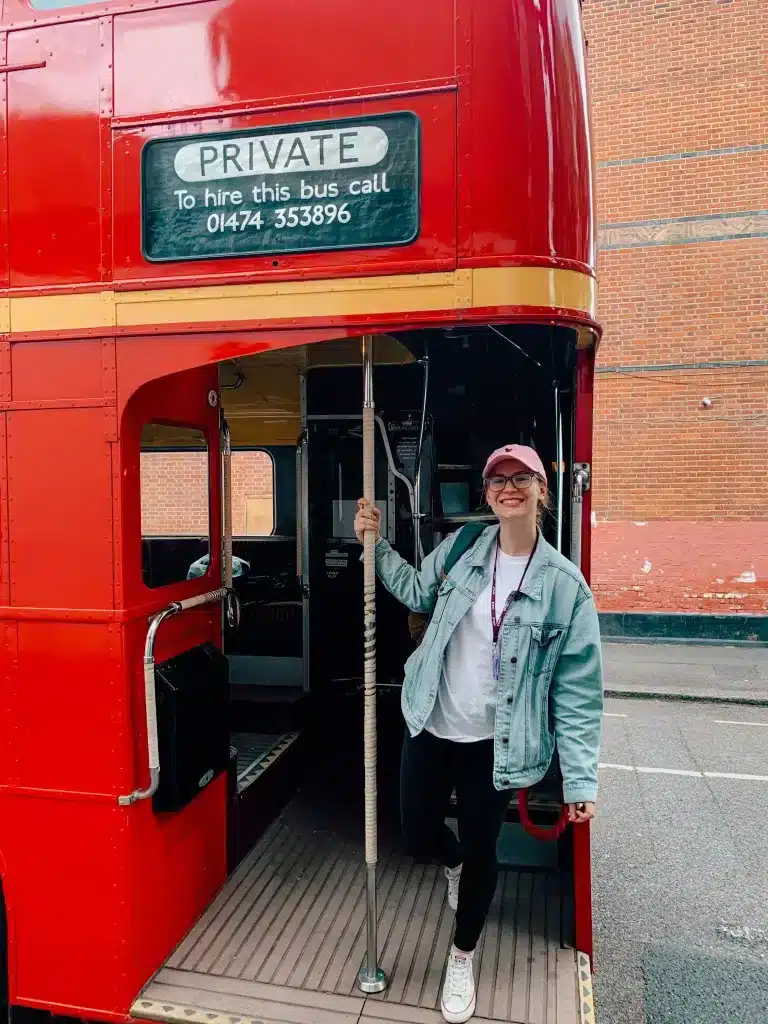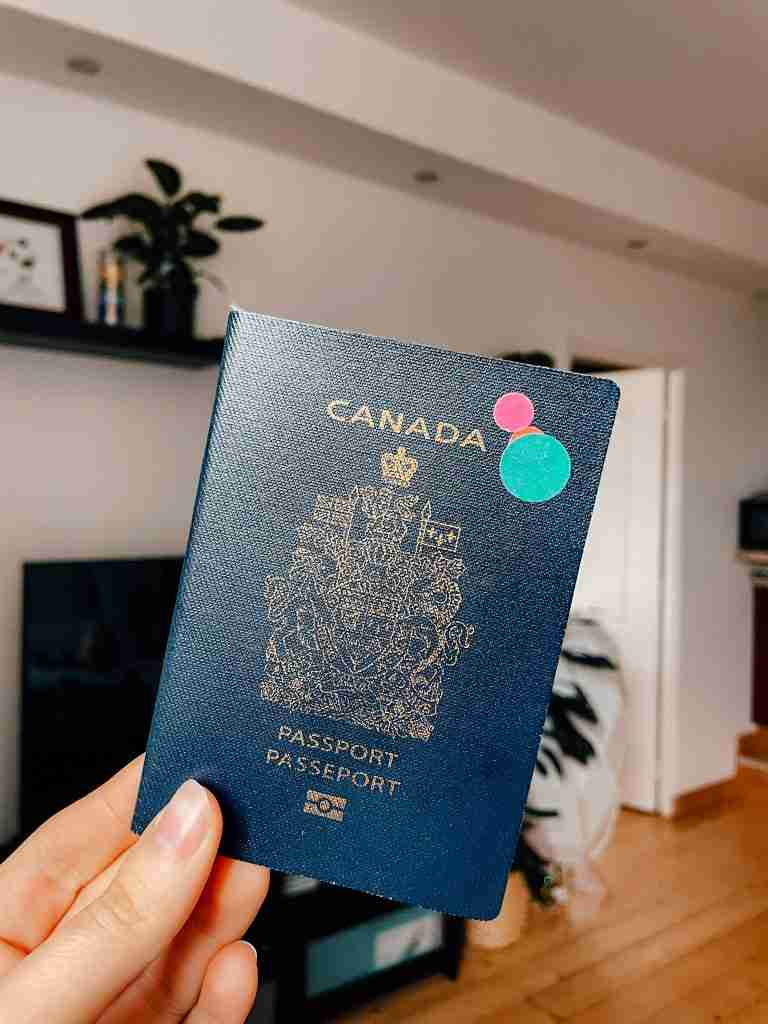Way back when I was still in school, I always wanted to live abroad. Once I was old enough to start making that dream a reality, I realized that the easiest way to do that is to apply for a Working Holiday Visa. I am currently on my second WHV living in France and the first I spent living in the UK. Best. Decision. Ever.
I strongly encourage people to take advantage of the Working Holiday Visa program! It is a wonderful opportunity that allows young people the chance to live and work in a foreign country. With a WHV, people are encouraged to travel, experience new cultures, and learn new languages.
I am in by no means an expert in the WHV program. Each country that offers a WHV does it a little bit differently. What is required changes, the process changes, the length of the visa changes, but the overall principle is the same. Even though I am not an expert I do have experience with 2 different countries that I am happy to share!
I know how intimidating and confusing the application process can be. So in this article, I break down exactly what it was like applying for a WHV for the UK and what it was like for France. I hope by reading about my experience you can find a little bit of clarity for those going through this process.
Feel free to leave any questions in the comments and I’d be happy to help in any way I can! I have also shared more about my WHV experiences including extending my WHV in France and what it was like working with a teaching agency in London. Hopefully, those are equally helpful to you!
What is a Working Holiday Visa?

A working holiday visa is a wonderful opportunity for people to experience living in a new country. The intention of the visa is for people under the age of 30 to learn and experience new cultures by being completely immersed.
They encourage you to travel and even allow you to work in your country to support yourself. This is especially appealing because typical ‘work visas’ normally require you to have a job lined up before applying. This, of course, can be really challenging and blocks some people from the opportunity of living abroad.
However, the Working Holiday Visa doesn’t require that. You can find a job for yourself once you’ve arrived. You also aren’t obligated to find a job at all! If you want to travel for the entire time, you are allowed to do that as well.
Most WHVs are for a 1-2 year period but it’s important to note that not every country offers them nor is every country allowed to apply for them. These are agreements that are arranged between the governments directly. This means that the countries allowed to apply and the documents required differ per country.
I am very fortunate to be Canadian, and many countries have WHV agreements with Canada including Australia, the UK, and other European countries. I have since learned from some American friends, that the USA doesn’t have the same agreements, so it is important to research the requirements and conditions specifically for YOUR home country.
My Working Holiday Visa process for the UK

I applied for the Tier 5 (Youth Mobility Scheme) visa in the summer of 2019. I was moving to London to be a teacher, so I luckily had the support of my teaching agency. They reassured me this was the correct visa and advised me when I roughly should start the application process.
To give you an idea, I arrived in London in September 2019, and I submitted my application in May.
Application & documents needed
I applied for the visa directly online. For the most part the questions were straightforward, however I did have to provide some detailed information. For example, they asked questions on where I was going to staying when I arrived (I used my airbnb address), I had to provide a travel history and provide an address where I would pick up my Residence Permit (BRP).
After the application was submitted, I was automatically directed to pay the healthcare surcharge. Essentially, I had to pay a fee for using the NHS for the 2 years I intended to live in the UK. This is a REQUIREMENT for the application, you can’t opt out.
Once that was paid, I had to make an appointment with VFS Global to submit all of my documents, including my passport. This company is responsible for processing and passing on the visa applications to the correct governments. Essentially, they are the middle man between you and the embassy.
The processing time after my documents were submitted was a bit longer than I was expecting. In the end, I received my passport on the very last day of the period of time they advise it would take to process. Since they take your passport, I wouldn’t plan to travel any time close after your application is submitted in case there are any delays.
For my appointment, I needed to bring with me:
📝 Visa documents: my visa application and appointment letter.
🪪 Passport: needed at least 1 blank page and needed to be valid for the entire length of my visa. Remember, they TAKE your passport for a period of time and return it to you with the visa inserted inside.
💸 Proof of funds: bank statement proving I had equivalent to 2,500 pounds.
On the day of the appointment:
I needed to get my finger prints and biometrics taken. I also had my photo taken on the day of the appointment which was used for my visa.
Something I didn’t appreciate during my appointment was that I was hit with several additional fees. I had to pay a processing fee, a courier fee for my passport to be delivered back to my house, and a fee for choosing the early time slot. In the end I paid an extra $181, something that wasn’t made clear when I was applying. I wasn’t impressed, but at least everything went smoothly!
Positives of this WHV
✅ I was able to apply for a 2 year visa, which is the maximum amount of time for a WHV.
✅ The healthcare charge, even though expensive, allowed me to have access to the NHS during my entire stay.
Negatives of this WHV
❌ The visa was quite expensive (USD$ 329 for the visa, USD$ 810 for the healthcare surcharge). I wasn’t impressed when I had additional charges!
❌ I had to arrange to pick up my residence permit at a postoffice in the UK. This wasn’t necessarily a big deal but an extra step to the process. This needed to be done within 10 days after my arrival.
My Working Holiday Visa process for France

I applied for the Working Holiday Visa, also known as the permit vacances travail (PVT) in French, in the autumn of 2021. My visa officially started at the end of January 2022. For me, the process was quite quick and easy (which is quite funny to say about the French Administration)!
Application & documents needed
It is advised to start your application 3 months before you intend to arrive in France to allow time to book an appointment and for your visa to be processed. In the end, the turn around time for me was much faster than the UK; it only took a couple weeks.
I completed my application directly online. The application was easy to complete and the questions were really straightforward. Once the application was submitted, I had to book an appointment with VFS Global (it was the same company that processed my UK visa, however I had to go to a new building).
The required documents is where I started to get confused. In fact, when I was at the VFS Global office, other applicants were having difficulties with their applications because they didn’t have the correct documents. So make sure you have everything with you!
Here are the documents I needed in the end:
📝 Visa documents: Signed and dated application form and my visa appointment letter
🪪 Passport: My passport which needed to have an expiry date at least 3 months longer than my intended length of stay
💸 Proof of funds: bank statement for the last 3 months proving I have a minimum equivalent to 2,500 euros.
🚑 Proof of subscription to an insurance policy: since the applications was for 1 year, I need to show my insurance plan covered my entire length of stay (including medical expenses and repatriation).
✉️ Letter of motivation: a written letter explaining why I want to live in France and explain my plans to leave after my visa expires. I wrote this in English!
📸 ID photos: they had to be specific dimensions which I was able to get done at Staples!
DON’T FORGET: Looking for travel medical insurance? SafetyWing is affordable, user-friendly, and has been my go-to for years!
I did not need:
On the list of documents there were a few documents listed saying “if the bilateral agreement provides for this” and in the end I didn’t need the following documents:
🩺 Medical certificate
👮🏼 Proof of clean criminal record
Positives of this WHV
✅ The visa application process was quick and straightforward, even though I had to clarify which documents I actually needed
✅ This visa was MUCH cheaper than the UK visa. It cost me a total of $85.17 which includes the processing fee and the courier fee for my passport to be delivered to my house directly.
✅ The visa acts as a residence permit, once I arrived in France there was nothing else required of me!
Negatives of this WHV
❌ The visa is only 1 year, compared to the UK visa which was 2. Canadians have the right to extend the visa, which can be done in France, however this process is VERY challenging.
❌ You do not benefit from French social security with the WHV. Meaning healthcare (Ameli) or unemployment benefits (pôle emploi). You have to organize and pay for your own insurance independently.
❌ I technically needed more documents than I had needed for the UK visa. Nothing too complicated but it is something to note.
Important Takeaways:

🇫🇷🇬🇧 Both visas are under the Working Holiday category, meaning that you do not need to have a job lined up in order to apply. The intention of these visas is for people to live in a new country and discover new languages and cultures.
🇫🇷🇬🇧 Both visas require your passport! Your passport is taken as part of the application and they put the visa on one of the pages.
💸 The WHV for the UK was significantly more expensive than the French visa.
📝 The documents required were slightly different for each visa (for France, I needed a letter of motivation and proof of insurance. And for the UK I needed biometrics).
🇫🇷 You have to renew your WHV in France, this is not necessary for the UK visa as you can apply to stay for 2 years in your original application.
🚑 I had access to the NHS, healthcare, while I was in the UK. I did not have the ability to do this for my French visa.
🪪 I needed a residence permit card while living in the UK, while in France my visa acted as my residency permit.
Which is better?
It’s impossible to say that one visa is ‘better’ than another. Especially when they are apart of the same category. But I would say that as an English speaker, living in the UK was a lot easier for me.
During my time in France, not having access to health coverage was actually quite frustrating. Even though I had to pay a pretty penny for the health care surcharge in the UK, in the end it was worth it knowing that I had coverage in case anything happened. I had a NHS like everyone else, I had a doctor, I could go to the hospital, I could get my covid vaccinations – everything was easy!
Another BIG issue I had with the French visa was the fact that I had to renew it. I detail what that experience was like here, but to summarize, it was one of the worst administration experiences in my life. The French administration is known for being horrible and I can confirm that they really make you work for your visa extension.
However, I really do enjoy living in France. Its given me the chance to experience a new culture. I loved living in London but as I said, it was easier – it wasn’t a challenge. Even if it was harder for me, I feel like I have learned a lot more and got a lot more out of my time living in France.
I also want to acknowledge that I am someone who arrived in France with limited French language skills. Without a doubt your experience would be different than mine if you have the ability to work in French! Not saying its impossible to live in France if you don’t speak French but it does make it easier.

Final Thoughts
After having a Working Holiday Visa for 4 years in total, I highly recommend it! I think it is an experience that some people don’t even know about and it is SUCH a great way to travel and experience new cultures WHILE also working. Not every country has this privilege so I am very happy I took advantage of it while I could!
I loved both of my visas. The experiences were, of course, different and deciding which country you want to live in is entirely personal preference. If you want to take baby steps, I would recommend the UK if you are English speaker. If you really want a cultural immersion and learn a new language, definitely give France a try.
Whether you’re deciding whether or not to apply for a WHV or you can’t decide which country you want to live in, I hope you found this article helpful! If you have any questions, feel free to drop them in the comments. Also be sure to browse more articles in the living abroad section of this blog for more tips and advice!
















4 Responses
Caity!! I absolutely adore you for writing a blog post about this. Looking to move to France for longer than 3 months at a time, and this post is seriously so helpful. Going to check out the WHV requirements for US citizens, I’m hoping it’s as simple as the Canadian process is!
Thanks again girl 🫶🏼
You are SO welcome!!! I’m so happy to know that this post is finding people who actually need it! If you need anything else, I’m happy to help if I can!! ❤️ I hope you can move to France!!!
Hi Caity! Thank you for this blog post. I am in the process of applying for a WHV for France from Canada and I was wondering did you have to show proof for accommodation? Thanks in advance!
Hi!! Good question, I know as part of the documents I didn’t need to submit anything about it! In the application, I believe they ask about accommodation for when you arrive and I’m pretty sure you can use an Airbnb or hotel address! When I was filling out my application I used a really helpful guide made by pvtistes and they detailed the process step by step! You can check it out here! Hope that helps!! 🙂